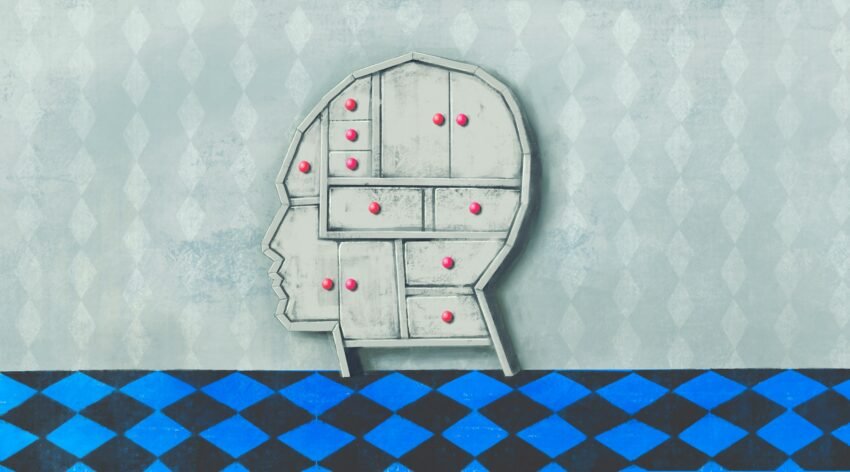Boost Your Confidence with These Life-Changing Habits

Confidence isn’t just a trait you have or lack, it’s a skill you can build. Imagine walking into a room and owning it, nailing that presentation, or simply feeling good in your own skin every day. This kind of confidence is achievable, not through dramatic changes, but by adopting simple, consistent habits. Whether you’re looking to boost your work performance or enhance your personal life, small adjustments can make all the difference. Let’s explore these habits to see how you can transform your confidence and, in turn, your life.
Understanding Confidence
Confidence is more than just feeling good about yourself. It plays a crucial role in mental health and overall life satisfaction. When you feel confident, you are more likely to step out of your comfort zone and chase your dreams. But what really is confidence? It’s a belief in yourself and your ability to handle different situations. It’s like having a mental safety net that assures you things will be okay, even if they get bumpy.
The Psychology of Confidence
The mind is powerful, and confidence is deeply rooted in psychology. When you feel confident, your decision-making skills improve, allowing you to make choices without second-guessing yourself. Think about how a confident soccer player dribbles; they don’t hesitate—they know the move they want to make.
Confidence also weaves itself into our relationships. When you believe in yourself, you’re more likely to communicate clearly and assertively. This helps build trust and respect with others. Ever notice how a confident speaker gets more attention? Their words have weight, and people listen because they sense conviction.
Common Barriers to Confidence
While confidence can seem elusive, it’s often clouded by common barriers. Ever heard that little voice in your head saying you aren’t good enough? That’s what we call negative self-talk, a major block to confidence. It can make you feel stuck, like trying to run through water.
To boost confidence, it’s crucial to identify and overcome these barriers:
- Fear of Failure: The worry of not succeeding can halt progress. But remember, mistakes are just stepping stones to success.
- Imposter Syndrome: Feeling like a fraud despite evidence of your abilities? It’s more common than you think but can be overcome by recognizing your achievements.
- Negative Thought Patterns: These are the repetitive, unhelpful thoughts that cloud judgment. Challenge them by focusing on your strengths and past successes.
When you begin to understand these barriers, you can start to dismantle them bit by bit. Replace negative thoughts with positive affirmations, and watch your confidence grow like a garden tended with care.
Confidence isn’t built overnight, but with patience and self-awareness, it’s a path anyone can follow.
Daily Habits to Boost Confidence
Building confidence is like planting a garden. You need to nurture it daily to see it grow and flourish. Small, consistent habits can make a big difference over time. Here are some practical steps anyone can add to their routine to strengthen self-confidence.
Practicing Positive Affirmations
Did you know that the way you talk to yourself can change your brain? Positive affirmations work by helping you shift your mindset. When you repeat positive statements, your brain starts to believe them, even if they aren’t true at first. Think of it like planting seeds of positivity in your mind. Over time, these seeds grow into a more confident self-image.
To create effective affirmations:
- Be specific: Instead of saying, “I’m good,” try “I am capable of handling challenges.”
- Use the present tense: Say “I am,” rather than “I will be.”
- Keep them positive: Avoid negative words. For example, say “I am calm,” not “I’m not anxious.”
Repeat your affirmations daily, especially in the morning, to set a confident tone for the day.
Mindfulness and Meditation
Being mindful is all about staying present and fully engaging with the moment you’re in. Mindfulness practices, like meditation, help you become more aware of your thoughts and feelings without being overwhelmed by them. This self-awareness reduces anxiety and boosts confidence as you learn to accept yourself as you are.
Here’s how you can get started:
- Set aside time: Even 5 minutes a day can work wonders.
- Focus on your breath: Pay attention to your inhales and exhales.
- Observe without judgment: Notice your thoughts but let them float by like clouds.
Practicing mindfulness creates a calm space in your mind, helping you make confident choices.
Goal Setting and Achievements
Setting goals is like plotting a roadmap for success. When you set realistic goals, you give yourself something concrete to work towards. Achieving these goals, no matter how small, boosts your confidence like nothing else. It’s a reminder that you can succeed and progress.
To make goal setting effective:
- Be realistic: Set goals that stretch you but are achievable.
- Break it down: Divide large goals into smaller, manageable tasks.
- Celebrate: Recognize and reward yourself for every achievement, no matter how small.
Consider keeping a journal to track your progress and celebrate your successes. This not only boosts confidence but also keeps you motivated.
By incorporating these habits into your daily routine, confidence can become a natural part of your life, just like brushing your teeth. Start small, stay consistent, and watch your confidence bloom.
Building a Supportive Environment
Surrounding yourself with positive influences is like planting a garden. Just as a garden flourishes with the right sunlight and water, a person thrives when supported by the right people. Let’s explore how nurturing relationships and seeking mentorship can boost your confidence and self-esteem.
Nurturing Relationships
Imagine having friends who remind you of your worth and encourage your dreams. Supportive friendships act as a mirror, reflecting your best qualities back to you. When friends celebrate your victories and stand by you during tough times, your confidence slowly grows like a tree stretching toward the sky.
Here’s how these relationships can boost self-esteem:
- Positive Feedback: Friends often see strengths you might overlook. Their praise helps you see yourself in a new light.
- Emotional Support: During setbacks, a supportive friend can offer comfort and encourage resilience.
- Shared Joy: Celebrating successes with friends amplifies happiness and reinforces your belief in your abilities.
Nurturing these connections requires effort. Reach out regularly, share experiences, and express gratitude. In doing so, you build a circle of positivity that elevates your self-assurance.
Seeking Mentorship
A mentor is like a guiding star in your personal and professional life. They don’t just provide answers—they illuminate paths and possibilities you might not have considered. Having someone who has walked the road before can provide you with invaluable insights and bolster your confidence.
Benefits of mentorship include:
- Learning from Experience: Mentors offer wisdom from their journeys, helping you avoid pitfalls and seize opportunities.
- Encouragement: Knowing someone believes in your potential can be a powerful motivator when challenges arise.
- Networking Opportunities: Mentors can introduce you to wider networks, opening doors you never knew existed.
- Personal Growth: Challenges posed by mentors push you to achieve more than you might on your own.
Approaching potential mentors can feel intimidating, but remember: many successful people are eager to share their knowledge. Be clear about your goals and show genuine interest in learning from them.
In your journey to build confidence, surrounding yourself with the right people can make all the difference. Like any healthy ecosystem, your environment should nourish, energize, and inspire you every day.
Embracing Failure as a Learning Tool
Failure can feel like a heavy weight on your shoulders, holding you back. But what if it didn’t? Imagine seeing failure not as a stumbling block, but as a stepping stone to success. By changing how we view and respond to failure, we can boost our confidence and feel empowered to tackle new challenges.
Reframing Failure Mindset
To begin viewing failure positively, it’s important to reframe your mindset. Instead of seeing it as a defeat, consider failure as a feedback mechanism. Much like a compass, it points us toward what needs adjusting. Here’s how you can start:
- Ask Why and Learn: Each time things don’t go as planned, ask yourself why. Pinpoint what went wrong, and then think about what you can change next time. Every mistake reveals valuable insights into improvement.
- Focus on Growth: Shift your focus from failure itself to what you gain from it. Are you developing new skills? Building better strategies? Like climbing a mountain, each step, whether up or down, gets you closer to the summit.
- Practice Self-Compassion: Treat yourself kindly when things go awry. Self-blame isn’t productive. Instead, see yourself as a friend who’s learning along the way. Remember, no one is perfect, and growth comes with patience.
Resilience Building Techniques
Once you embrace failure, building resilience is the next step. Resilience helps you bounce back and try again. Consider these techniques to strengthen your inner resolve:
- Set Small, Achievable Goals: Break larger goals into smaller steps. Celebrate each small win to build momentum and confidence. It’s like training for a marathon by running a little further each day.
- Develop a Support Network: Surround yourself with encouraging people. Share your experiences with friends or mentors who can offer guidance and uplift you when times are tough. Having a supportive team can significantly boost your ability to handle setbacks.
- Cultivate a Positive Outlook: Challenge negative thoughts and replace them with hopeful ones. For example, instead of thinking, “I’ll never get this right,” tell yourself, “I’m getting closer to understanding.” Positive thinking can sharpen your determination like a whetstone sharpens a blade.
By embracing failure as a learning opportunity and building resilience, you can transform setbacks into powerful driving forces for success. Remember, each lesson from failure adds a new tool to your toolbox, helping you tackle future challenges with greater confidence and capability.
Conclusion
Building confidence is a journey, not a destination. Adopting these habits can reshape your perspective and slowly nurture a more assured version of yourself. Remember, true confidence blossoms through consistent action, self-awareness, and embracing each small victory.
Start today. Choose one habit to integrate into your routine. Notice the changes in how you feel and how others perceive you. Don’t rush. Growth is gradual but the results are incredibly rewarding.
What steps will you take first? Share your thoughts in the comments. And don’t forget to check back for more insights on personal growth that can inspire and empower you on this journey. Thank you for reading and daring to expand your horizons.




Leave a Reply